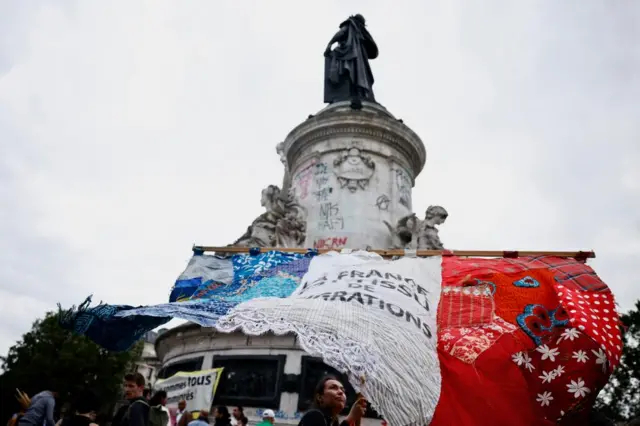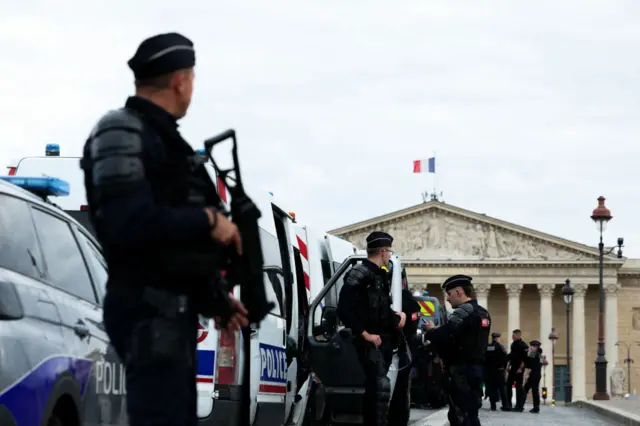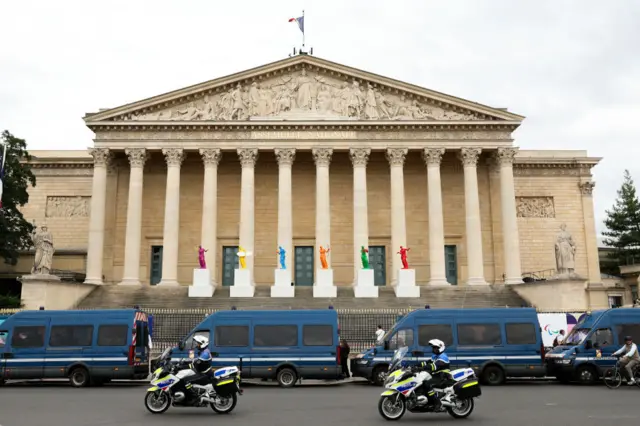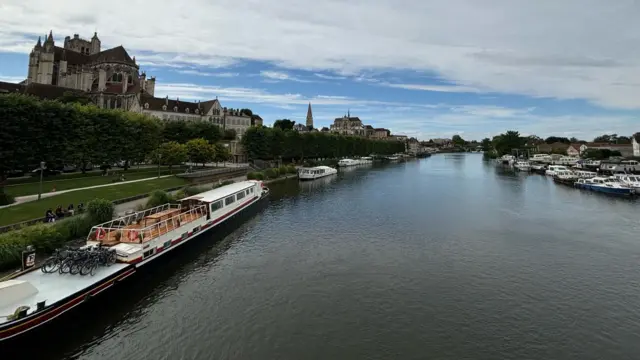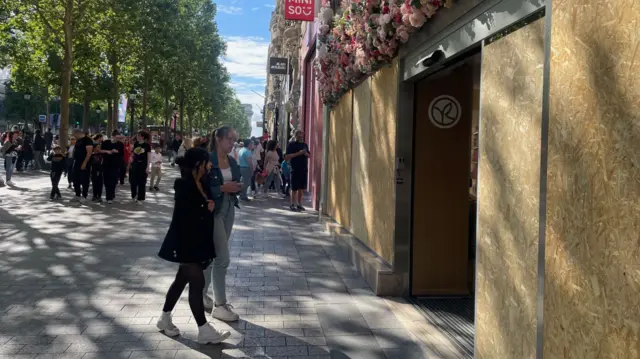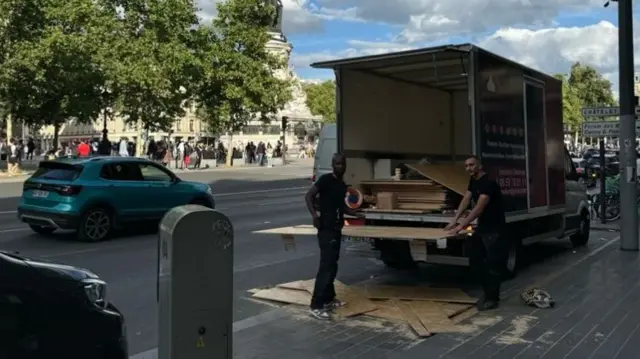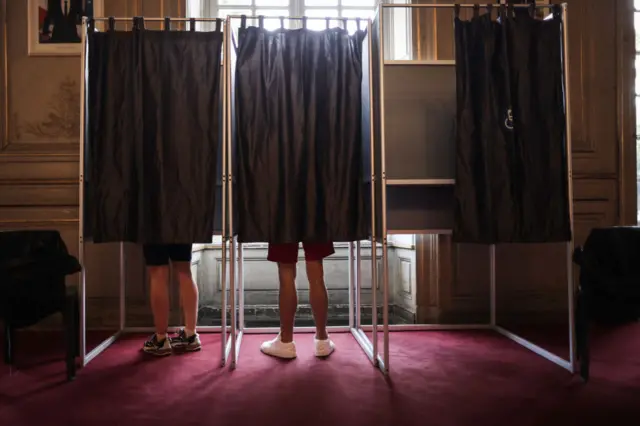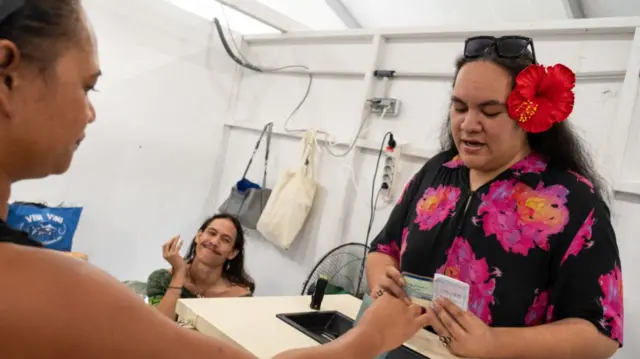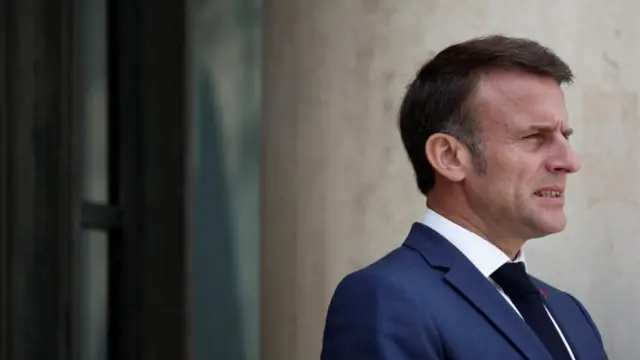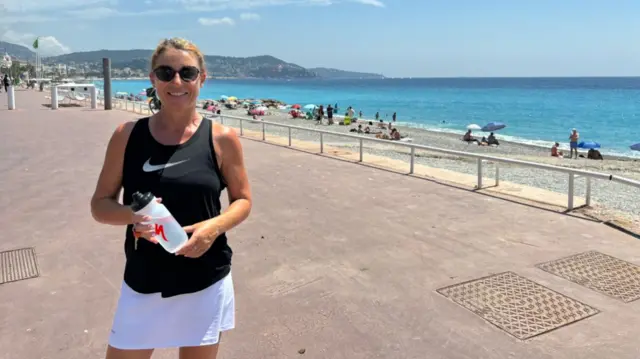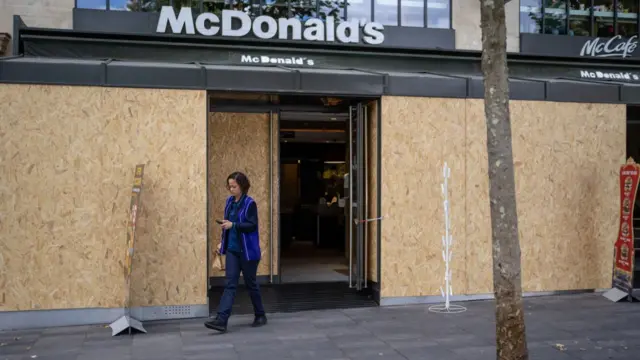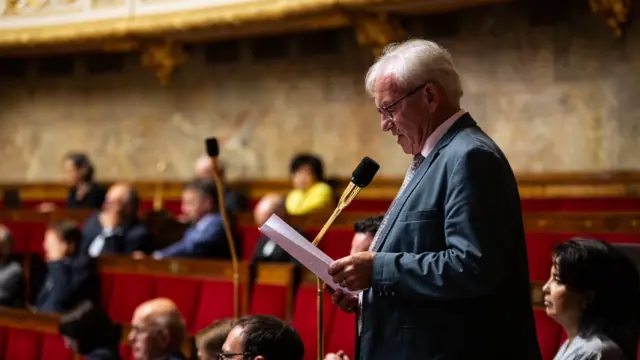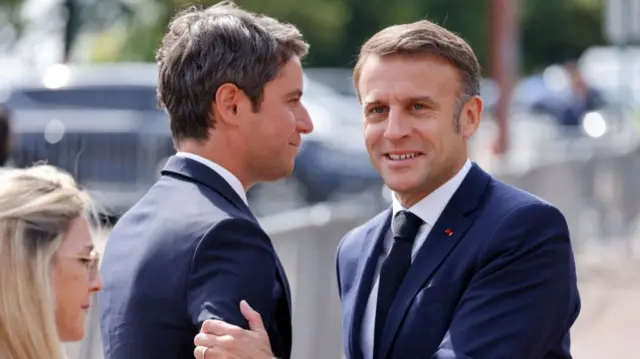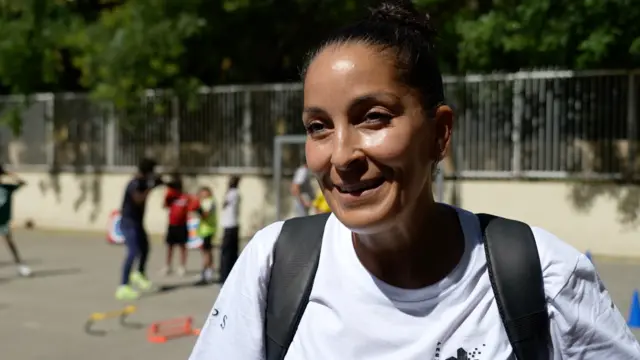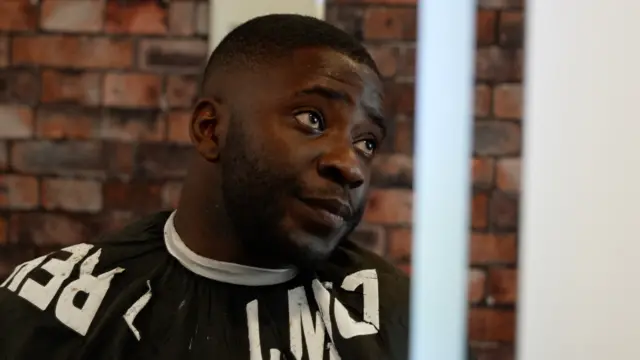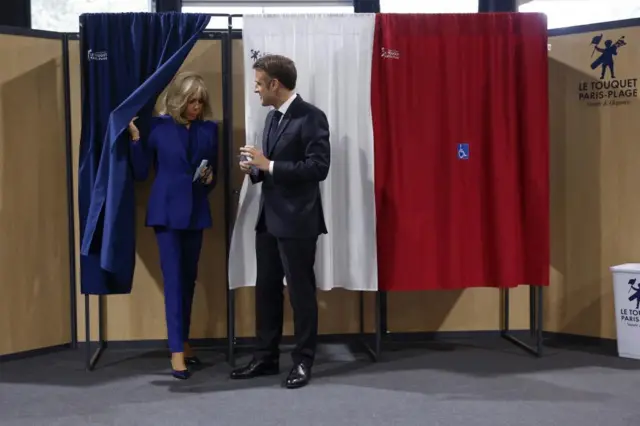Confused picture as projections come inpublished at 19:00 BST 7 July 2024Breaking
Exit polls have just been made available and they all give different numbers - to the point we cannot confidently say which party has come out on top.
France Télévisions gives the National Rally between 120 and 160 seats - if that's correct then this is a surprise defeat for the RN, which would have come third.
Two other polls, including France's biggest private channel TF1 and from RTL/M6 suggest RN has come second. One other projection gives RN the biggest number of seats, but that may be an outlier.
However, what is clear is that France is heading for a hung parliament with no single bloc controlling a majority. The picture will become clearer in the next few hours as actual results come trickling in - we will bring you those as we get them.
